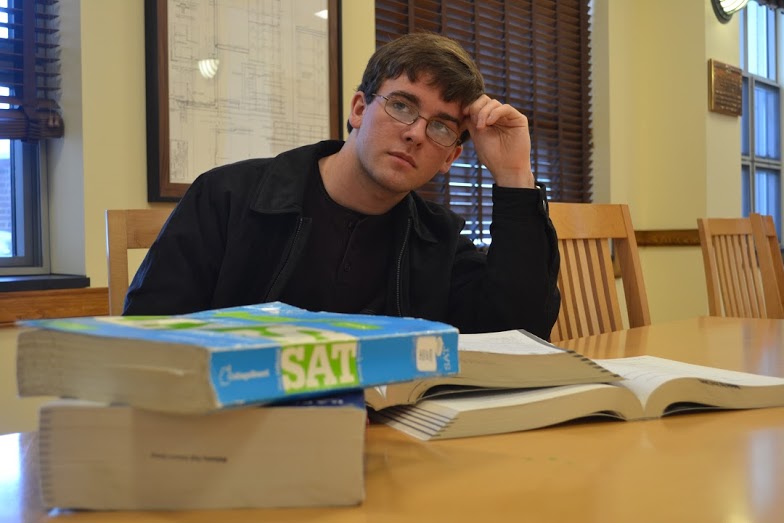Because I start my conversations with a simple greeting before proceeding to analyze the form and function of every person’s response, I feel I have an appreciation for the values and skills that my public education has granted me. Without spending roughly 3,150 hours of time in sheltered containment in a building so removed from everyday society that it even hosts its own law enforcement officials and judicial system, I don’t know how I could have developed into a complete person. How could I possibly learn true human values and important life skills by interacting with real people and working on real projects with real results in the real world? Such an idea is preposterous.
To realize the opportunities that this educational system provides us, reflect on what we couldn’t do without it. Just think– without high school, we wouldn’t know how to generate mathematical graphs that a math teacher has proudly stated have no function in our daily lives. More disturbing is the thought of living my entire life without having a concrete understanding that there is no person with a concrete understanding of what a tragedy really is. Even worse, I wouldn’t be able to identify the speaker, context, and literary significance of five-word quotes from these very tragedies that have such unclear significance in the first place. And just in case someone happens to ask such a task of me someday, I will always be able to name off every economic panic in the United States prior to 1900 and explain all of their causes, which really amount to be virtually indifferent from one another.
Even more importantly, high school has taught me that the conventional concepts behind how numbers work is irrelevant to real-life application. Prior to my admittance into such a high-thinking institution, I was ludicrous enough to believe that in a 24 hour day, the most that one could work is for 24 hours. But apparently that is also false; I’ve learned that here, it’s perfectly acceptable to expect a student to accomplish 30 hours-worth of work in those 24 hours. I’ve also learned that it’s absurd to believe that the human body actually requires sleep to function; apparently in the secluded world of education, people, particularly those between the ages of 15 and 18, do not actually need to rest in order to perform well.
But nevertheless, high school has genuinely set me on a clear path to success. Someday when I sit down for a job interview, I will proudly tell the recruiter that I can tell them all about the allegories present in Crime and Punishment or explain how their life would be different if they lived over 1,000 years ago on a continent over 1,000 miles away. Just to put the icing on the cake, I will proudly report that I have no experience interacting with others in a professional environment, nor do I have any training in first aid or crisis management, nor have experience being civically engaged in municipal government before, all because high school made sure I wouldn’t have time for any of it. Thank goodness for that.
But one needs not worry if they begin to stray from these institutionally-implemented academic values that have so little relevance to genuine success in the real world; the education system also has a solution to that. If I make a stupid decision, like choose to sleep for the medically-prescribed amount or entertain a human’s scientifically-proven necessity for regular relaxation, I will be abruptly jerked back onto the proper path with a pop reading quiz on last night’s 60 pages of old-style English or a thorough check of my sinusoidal equations’ curvature.
So there’s really no reason to be doubtful of our high school education and how it prepares us for the future. Blind belief in the doctrines poured down our throats by mandate sounds good to me. I sure am glad that I have such a wonderful opportunity to think without thinking.
(Matthew Hornung ’16, Media Director)

